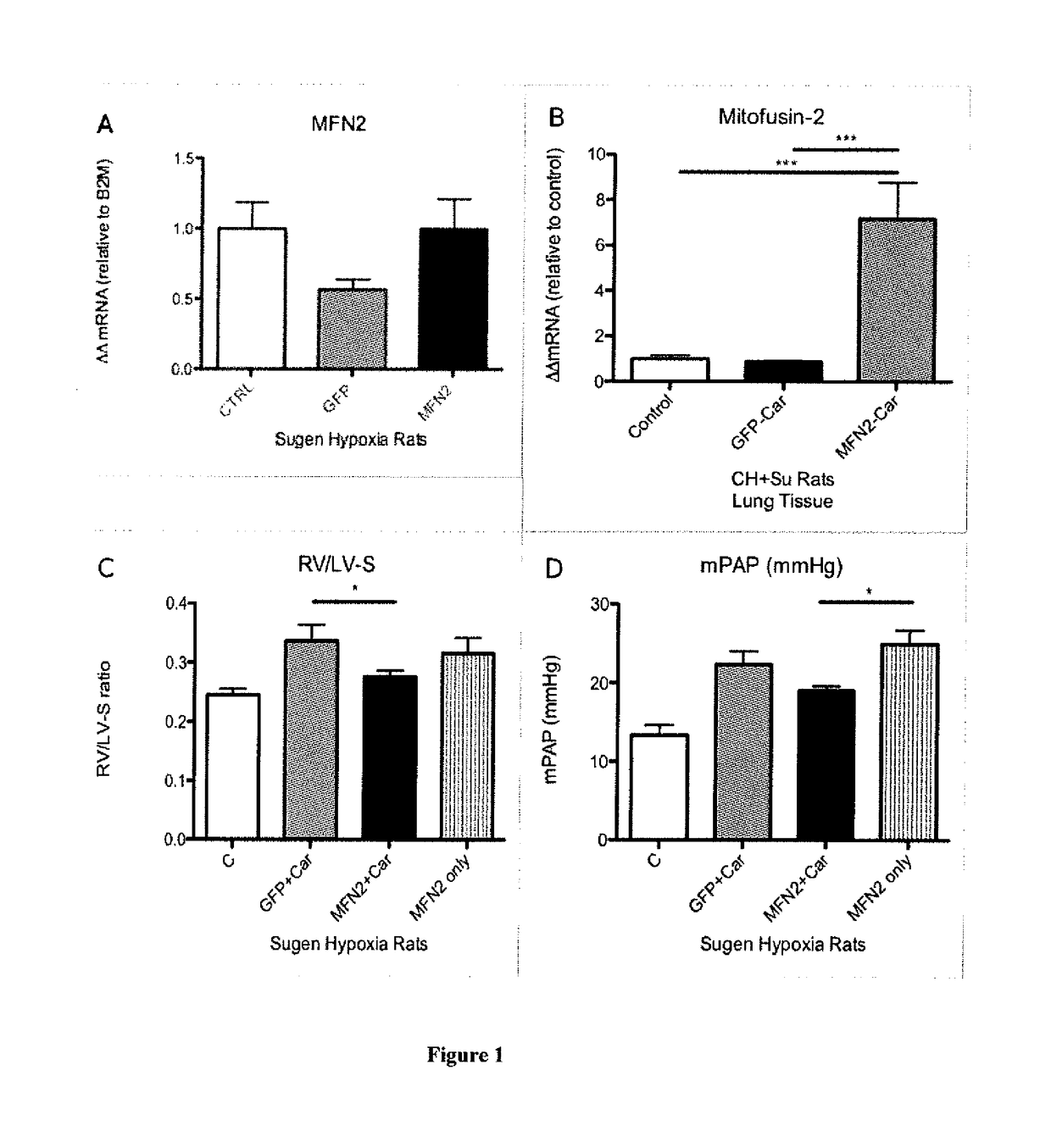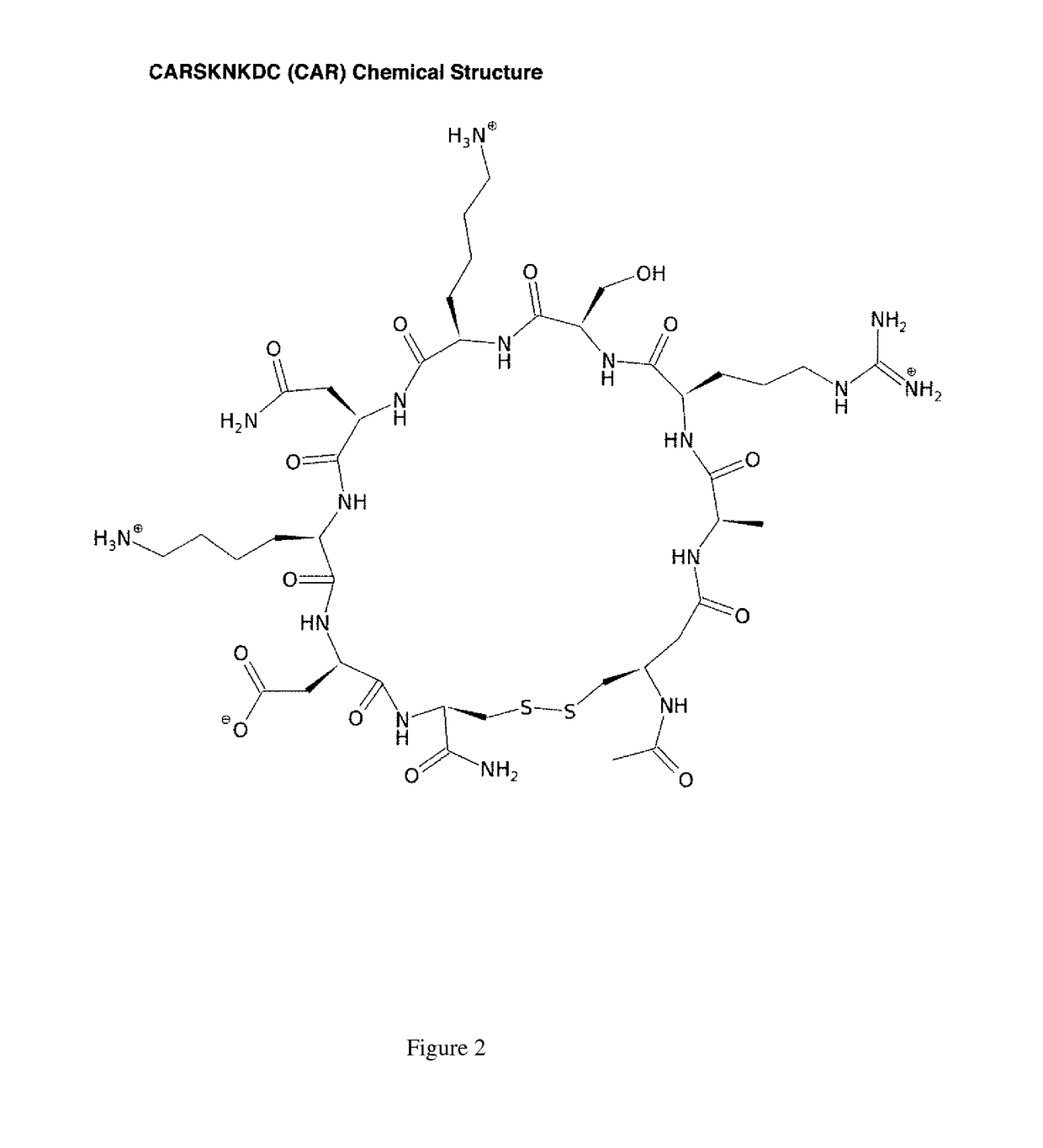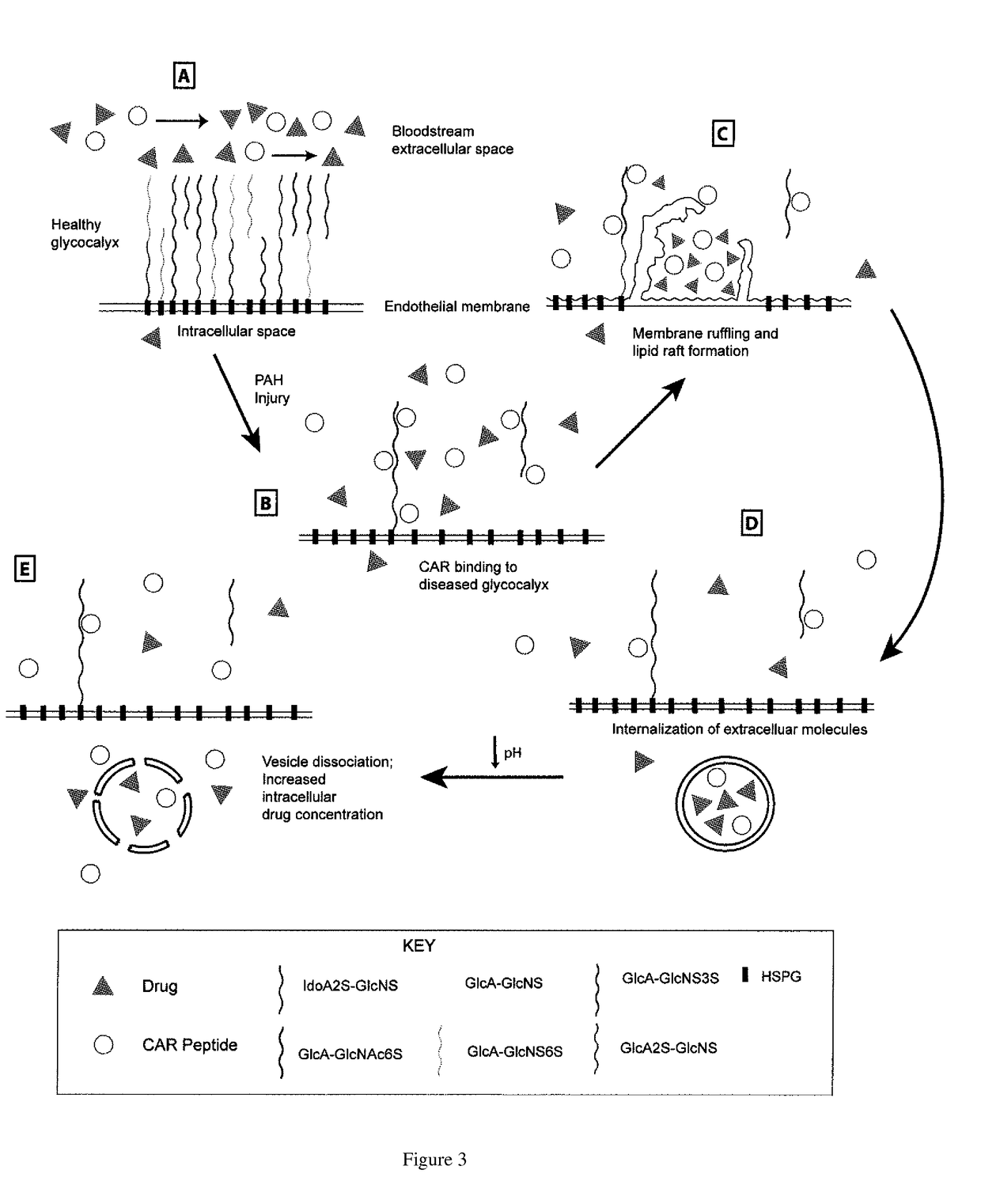Methods for increasing the selective efficacy of gene therapy using CAR peptide and heparan-sulfate mediated macropinocytosis
a car peptide and macropinocytosis technology, applied in the field of molecular medicine, can solve the problems of little known about their roles in vitro and in vivo, and achieve the effects of improving enhancing macropinocytosis, and increasing the selective efficacy of gene therapy
- Summary
- Abstract
- Description
- Claims
- Application Information
AI Technical Summary
Benefits of technology
Problems solved by technology
Method used
Image
Examples
examples
[0083]Recent experiments (Urakami et al. 2011; Toba et al. (in submission)) have demonstrated the ability of the pulmonary hypertensive homing, cell-penetrating peptide CARSKNKDC (CAR) (FIG. 2) to enhance the effects of co-administered vasodilators (fasudil, Y-27632, imatimib, and sildenafil) in selectively lowering pulmonary pressure in animal models of pulmonary arterial hypertension (PAH). Here we provide a hypothesis for CAR's mechanism of action and identify a putative receptor.
Methods
[0084]We examined data on enzymatic specificity from the literature and combined it with genetic expression in a porcine model of pulmonary hypertension to arrive at a likely target for CAR. In previous experiments, cell-surface heparan sulfate (HS) was shown to be necessary for both CAR binding and internalization (Järvinen et al. 2007). When treated with heparinase I and III, binding of CAR to Chinese hamster ovary cells was greatly reduced. This suggested that CAR's specific binding and interna...
PUM
 Login to view more
Login to view more Abstract
Description
Claims
Application Information
 Login to view more
Login to view more - R&D Engineer
- R&D Manager
- IP Professional
- Industry Leading Data Capabilities
- Powerful AI technology
- Patent DNA Extraction
Browse by: Latest US Patents, China's latest patents, Technical Efficacy Thesaurus, Application Domain, Technology Topic.
© 2024 PatSnap. All rights reserved.Legal|Privacy policy|Modern Slavery Act Transparency Statement|Sitemap



